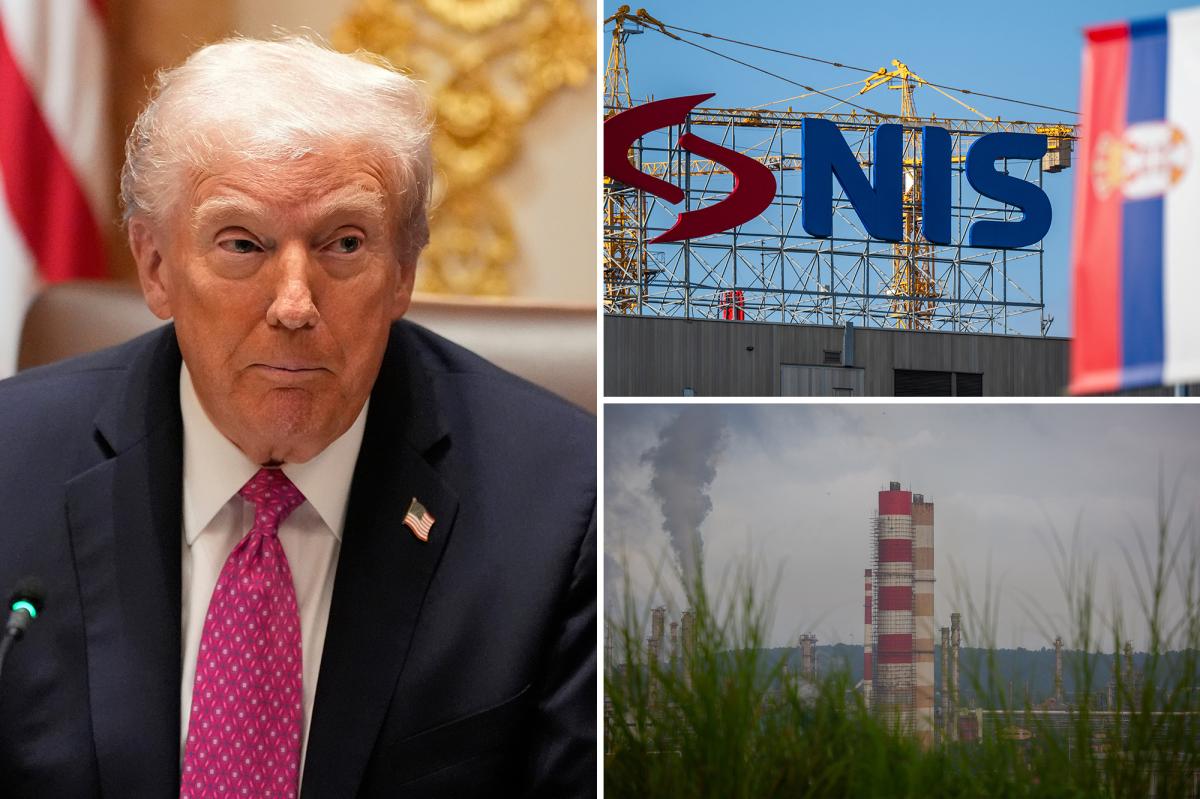China and India are pulling back from buying Russian oil after President Trump sanctioned two of Moscow’s biggest exporters Wednesday.
Reuters reported Thursday that Chinese state-run petroleum firms PetroChina, Sinopec, CNOOC and Zhenhua Oil had suspended purchases of seaborne Russian oil after the Treasury Department announced sanctions on Rosneft and Lukoil, citing Moscow’s “lack of serious commitment to a peace process to end the war in Ukraine.”
However, shipments of oil via a pipeline connecting Russia and China are set to continue.
Meanwhile, the wire service reported that Indian refiner Reliance Industries would soon reduce or cease imports of Russian crude.
A spokesperson for the Mumbai-based conglomerate said Reliance had begun a “recalibration of Russian oil imports,” but did not give further details.
China and India are the world’s most prolific purchasers of Russian oil — together accounting for a whopping 85% of Moscow’s exports in August, according to the Center for Research on Energy and Clear Air.
If Beijing and New Delhi completely divest from Rosneft and Lukoil, Russia’s ability to fund its invasion of Ukraine would likely be permanently hampered.
Beijing “opposes” the US sanctions, Chinese Foreign Ministry spokesman Guo Jiakun said Thursday, claiming they “have no basis in international law.”
Russian President Vladimir Putin downplayed the possible effects of Trump’s action Thursday in an apparent attempt to downplay sanctions-induced pressure to end his war.
“Yes, they are of a serious nature for us, of course, it is clear and they will have certain consequences,” he said, “but they will not significantly affect our economic well-being.”
John Hardie, director of The Foundation for Defense of Democracy’s Russia program, disagreed, telling The Post that the sanctions were a “big deal” — but “the extent of their impact will depend largely on US enforcement.”
“If the administration is aggressive in pursuing violators, the sanctions will likely squeeze Russian revenue significantly,” he said. “That will balloon Moscow’s deficit and make it more difficult for Russia to sustain the war.”
Russia’s economy has been dealt a series of blows by high interest rates, falling oil revenues, and a lack of investment in non-military sectors of the economy.
Earlier this week, the Vienna Institute for International Economic Studies projected that Russia’s GDP would only grow by 1.2% this year, with Moscow only narrowly avoiding a recession.
The White House has called the sanctions the latest effort to bring Putin to the table for serious talks about ending the 32-month-old war in eastern Europe after plans for a summit with Trump in Budapest, Hungary were scrapped earlier this week.
White House press secretary Karoline Leavitt said Thursday that “a meeting between these two leaders is not completely off the table,” but Russia must prove it is ready for peace first.
“I think the president and the entire administration hopes that one day that can happen again, but we want to make sure that there’s a tangible positive outcome out of that meeting, and that it’s a good use of the president’s time,” she said.
When asked about the sanctions, Leavitt said Trump had always “maintained that he would implement sanctions on Russia when he felt it was appropriate and necessary — and yesterday was that day.”
“He has always said [that] in order to negotiate a good peace deal, both sides need to be interested in a good peace deal,” she said. “And he feels as though, unfortunately, from the Russian side as of late, he has not seen enough interest in enough action in terms of moving the ball forward towards peace.”
Secretary of State Marco Rubio said the same on Wednesday night as he departed Joint Base Andrews for a trip to Israel.
“I think the president has said repeatedly for a number of months now that at some point he will have to do something if we don’t make progress on the peace deal,” Rubio told reporters. “Today was the day he decided to do something.”
But if the plan doesn’t work on Putin, Treasury Secretary Scott Bessent said his department was “prepared to take further action if necessary to support President Trump’s effort to end yet another war.”
Also Wednesday, the European Union banned the purchase of Russian liquefied natural gas imports and issued sanctions on Chinese companies that supply dual-use goods — meaning items with civilian and military uses — that can help Russia circumvent trading restrictions.


